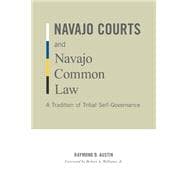
What is included with this book?
| Foreword The Tribal Law Revolution in Indian Country Today | p. ix |
| Acknowledgements | p. xv |
| Introduction | |
| Modern Issues, Ancient Traditions: Going Back to Fundamental Values | p. xvii |
| The Navajo Nation Court System | |
| Brief Navajo History | |
| History of the Navajo Nation Courts Modern Navajo Nation Courts | p. 1 |
| Foundational Dine Law Principles | |
| Returning to Traditional Navajo Laws and Methods | p. 37 |
| Hózh&Qacute; (Peace, Harmony, and Balance) | |
| Hózh&Qacute; in Navajo Culture | |
| Hózh&Qacute; in the Navajo Nation Courts | p. 53 |
| K’s é(Kinship Unity through Positive Values) | |
| K’é in Navajo Culture | |
| K’é in the Navajo Nation Courts | |
| K’é Informs Individual and Community Rights | |
| K’é as the Basis for Equitable Rights | p. 83 |
| K’éi (Descent, Clanship, and Kinship) | |
| K’éi in Navajo Culture | |
| K’éi informs Traditional Domestic Matters | |
| K’éi in the Navajo Nation Courts Descent and Distribution | p. 137 |
| Conclution | |
| Law Is the Product of Human Experience | p. 199 |
| Glossary of Navajo Words and Kinship Terms | p. 203 |
| Notes | p. 207 |
| Index | p. 251 |
| Index to Navajo Nation Court Cases, Council Resolutions, and Statutes | p. 259 |
| Table of Contents provided by Ingram. All Rights Reserved. |
The New copy of this book will include any supplemental materials advertised. Please check the title of the book to determine if it should include any access cards, study guides, lab manuals, CDs, etc.
The Used, Rental and eBook copies of this book are not guaranteed to include any supplemental materials. Typically, only the book itself is included. This is true even if the title states it includes any access cards, study guides, lab manuals, CDs, etc.